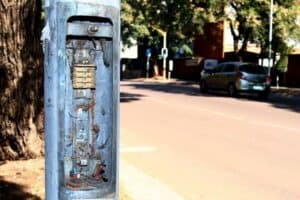More electricity hikes are coming after municipalities received approval to go ahead with increases of up to 14%.

Newly approved electricity hikes will come into effect tomorrow and will have households scratching their heads as to how much more they can limit their usage.
The National Energy Regulator of South Africa (Nersa) approved tariff increases between 4 to 5 times higher than latest inflation figures for over 100 municipalities in recent weeks, placing strain on consumers across the country.
Alarm over the increases was illustrated by Nersa’s comment that a record number of objections and submissions by affected customers were received from individual households.
High tariff increases
Nersa approved an 11.32% increase in Eskom’s wholesale prices to municipalities earlier this year, but these municipalities made individual applications for increases for their own customers.
Metropolitan municipalities covering Johannesburg, Cape Town, Bloemfontein, Gqeberha and East London will have their electricity increase between 12.4% and 12.8% from 1 July.
The City of Tshwane customers escaped with a 10.2% increase, while those in Ekurhuleni were slapped with a 13.4% increase.
2025 municipal electricity tariff hikes
| Municipality | Increase |
| Buffalo City | 12.74% |
| City of Cape Town | 12.8%* |
| City of eThekwini | 12.72% |
| City of Tshwane | 10.20% |
| City Power (Johannesburg) | 12.41% |
| Ekurhuleni Metropolitan | 13.40% |
| Mangaung Municipality | 12.40% |
| Nelson Mandela Bay | 12.80% |
Among the reasons Nersa used to justify limiting even higher increases were poor financial performance, mounting municipal debt and high energy losses, essentially preventing the results of mismanagement being passed onto the consumer.
Winter pressure on bills
Electricity bills are naturally higher in winter and these added costs could plunge households headfirst into a billing abyss.
“We keep having to deal with these above inflation increases for what is an essential service. It is painful not to have access to electricity, but at this stage it is becoming an affordability issue,” said LookSee Executive Head Marc Du Plessis.
“Behaviour is all about habits and habits can be changed. They may be hard to break but it is possible to make a shift that has a fundamental impact on your pocket,” advises Du Plessis.
He notes that there are two variable municipal charges that households can do something about — electricity and water — and by evaluating the usage of those, increases can be absorbed or even offset.
Household savings a sought-after destination
Freely available on the LookSee platform, the Smart Save journey cross-references in-depth geographical, electricity consumption standards and municipal information with a household’s unique specifications to enable users to make accurate energy decisions.
“The Smart Save journey is a commitment to not only helping households save, but to giving them reliable information and insights into what their comparable costs are,” states Du Plessis.
Coupled with the Energy Efficiency Score that measures how efficiently a household consumes electricity, each home can build their own energy profile.
“We really believe that by empowering households with knowledge and insights, they can then do more in their own homes to manage their monthly costs and put money back into their budget,” he explains.






